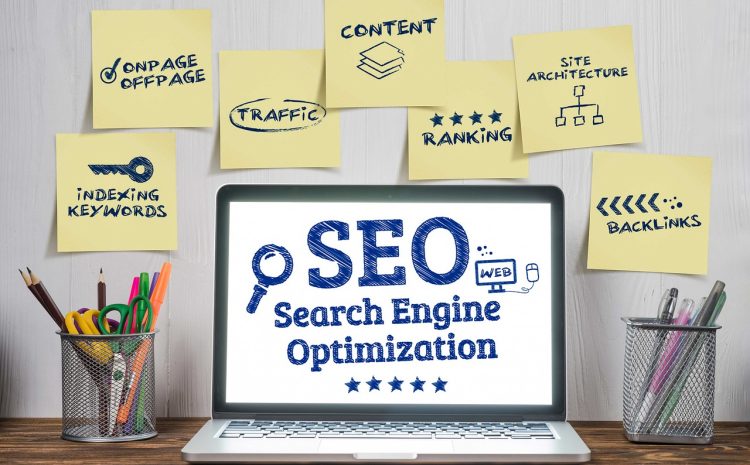SEO Strategy 2025
Creating an effective SEO strategy for 2025 involves understanding the evolving landscape of search engine algorithms, user behavior, and technological advancements. Here are the key components for an SEO strategy in 2025:
1. Focus on User Intent
- Search Intent Mapping: Understanding the intent behind search queries is more crucial than ever. Whether users are looking for informational, transactional, or navigational content, optimizing for intent is essential.
- AI and NLP (Natural Language Processing): Tools like Google’s BERT and MUM are evolving, making it important to create content that matches the natural language people use in search queries.
2. Voice Search Optimization
- As voice search grows with the adoption of devices like smart speakers and virtual assistants (Siri, Alexa, Google Assistant), optimizing for conversational keywords and natural language will be crucial.
- Ensure your content answers questions in a direct, concise, and conversational manner.
3. Mobile-First Indexing
- Google has fully transitioned to mobile-first indexing, meaning the mobile version of your website is the primary factor for ranking. Ensure your website is responsive, loads fast, and provides an excellent user experience on mobile devices.
- Prioritize Core Web Vitals (loading performance, interactivity, and visual stability) as ranking factors.
4. AI and Automation in SEO
- AI tools are increasingly helping with keyword research, content generation, and even technical SEO. Incorporating AI-powered tools can assist in predicting trends, automating tedious tasks, and offering actionable insights.
- Automated content tools (like GPT-4 and beyond) can help scale content creation but must be carefully optimized for quality and relevance.
5. E-A-T and Expertise
- Google’s focus on E-A-T (Expertise, Authoritativeness, Trustworthiness) continues to grow, particularly for YMYL (Your Money, Your Life) websites like health, finance, and legal content.
- Work on establishing authority in your niche, ensuring that your content is well-researched and backed by credible sources. Show your expertise through high-quality content and link building.
6. Featured Snippets and Zero-Click Searches
- Optimize for featured snippets (the boxed information that appears at the top of search results) by structuring your content to answer common questions in a concise manner (e.g., using numbered lists, bullet points).
- Monitor zero-click searches (where the search result provides an answer without the user needing to click through). Tailor content to provide direct answers and increase visibility.
7. Video and Visual Content Optimization
- Video content continues to be a major ranking factor, especially with platforms like YouTube (the second-largest search engine). Optimize videos with relevant titles, descriptions, and tags, and incorporate them into your website content.
- Image and visual search will continue to gain traction. Optimize images for search by using descriptive alt text, optimizing file sizes, and leveraging tools like Google Lens.
8. Structured Data and Schema Markup
- Using structured data and schema markup helps search engines understand your content and enhances your visibility in rich snippets, knowledge graphs, and other advanced SERP features.
- Focus on schema types like FAQ, How-to, and Product schema to increase the chances of appearing in rich snippets and other enhanced search results.
9. Local SEO and Hyperlocal Targeting
- As location-based searches increase, local SEO will continue to be a significant factor. Optimize for Google My Business and focus on local backlinks and reviews.
- Hyperlocal targeting, where businesses target specific neighborhoods or areas within cities, will become increasingly important for capturing local search traffic.
10. Content Quality Over Quantity
- While content quantity has historically been emphasized, in 2025, quality is paramount. Content should be in-depth, thoroughly researched, and answer specific user queries comprehensively.
- Invest in long-form content that provides real value, while also focusing on maintaining a steady flow of smaller, more actionable pieces for broader coverage.
11. Link Building and Authority Building
- Link building remains crucial but the focus should be on high-quality, relevant backlinks. Spammy link-building tactics will be penalized as Google continues to refine its ability to detect manipulative linking practices.
- Focus on building authoritative links by publishing research, case studies, guest posts on reputable sites, and leveraging PR for brand mentions.
12. Data Privacy and SEO
- With increasing concerns over data privacy (GDPR, CCPA), SEO strategies must consider privacy-compliant practices when collecting data and optimizing content.
- Transparency in data collection and adherence to privacy regulations could influence user trust and indirectly affect rankings.
13. SEO for AI and Machine Learning-Powered Search Engines
- The integration of AI into search engines (such as Google’s AI-driven MUM or Bard) will affect how content is ranked and understood. Optimizing content for machine learning algorithms requires focusing on context and user relevance.
- Experiment with conversational content and structured content that AI can more easily understand and present in search results.
14. SEO and Social Media Integration
- Social signals will not directly impact SEO, but social media engagement can increase traffic and create natural backlinks. Use social platforms to distribute content, build your brand’s presence, and engage with your audience.
- Social commerce (buying directly from social platforms) will likely impact SEO in terms of how search engines view social signals and intent.
15. Sustainability and Green SEO
- As the world increasingly focuses on sustainability, brands with an emphasis on eco-friendly practices may gain more favor in search rankings, especially if they communicate this through content, technical SEO (e.g., energy-efficient websites), and green certifications.
Conclusion:
The SEO strategy for 2025 will require adapting to new technologies, understanding and leveraging user intent, and prioritizing high-quality, authoritative content. Integrating AI, embracing emerging technologies like voice search, and focusing on the user experience will be critical for success. By staying ahead of trends and continuously optimizing for evolving search engines, brands can maintain a strong and competitive online presence.





